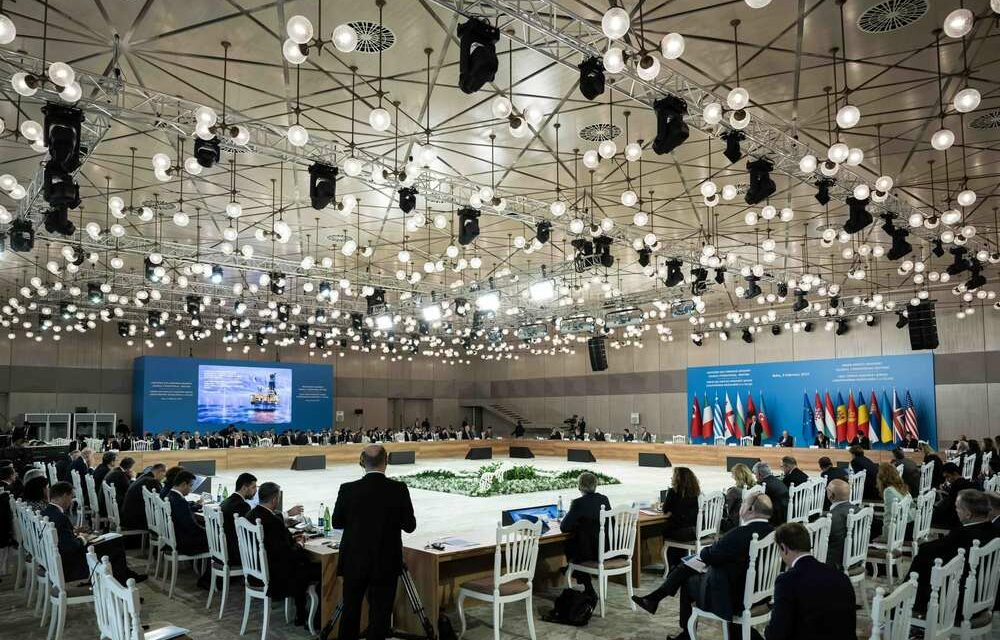Speaking at the Southern Gas Corridor and Green Energy Conference in Baku, the head of the ministry underlined that the most realistic scenario in terms of diversification in Central Europe is the involvement of increased natural gas production in Azerbaijan as soon as possible, and this week Hungary and Azerbaijan concluded a memorandum of understanding.
At the same time, he warned that this has certain infrastructural prerequisites, and although the increase in the capacity of the Trans-Anatolian gas pipeline is good news, significant network development programs must also be implemented in Southeast Europe.
That is why Hungary, Bulgaria, Romania and Slovakia turned to the European Commission so that the community, treating the issue as a priority, supports the developments necessary to guarantee the energy security of the Central European region, he reminded.
„If the European Union is not only using diversification as a political communication tool, then it is time for Brussels to act and finance the necessary infrastructure developments in South East Europe, thus enabling the inclusion of increased gas production from Azerbaijan”
he said.
Péter Szijjártó emphasized at the panel discussion that this is currently the only way to diversify.
„To ensure that diversification does not remain just a dream, the European Commission must also do its homework”
he stated.
The minister reported that Hungary, as a landlocked state, is highly dependent on others for energy supply, including whether neighboring and other transit countries have made the necessary investments.
„The government has always viewed energy supply as a physical issue, not a political or ideological one. Until it can be fueled by ideologies or political statements, we must see energy supply as a physical issue ”
he pointed out.
He called energy security a matter of national security, and made it known that the government will continue to strongly reject any attempt to intervene in this area, as it has done so far. He believed that Hungary's energy supply is still safe today, which is largely due to the Turkish Stream gas pipeline, which is still operating at one hundred percent capacity.
He pointed out that some people tried to prevent the construction of the pipeline, threatening sanctions, but the project was realized thanks to the brave decisions of the participating countries.
„If we had not built it, we would be facing very serious problems today”
- He told.
He underlined that natural gas is indispensable during the green transition, without which it is simply impossible to meet climate and environmental protection goals.
He also touched on the fact that our country has been using nuclear energy for more than forty years, and considers it a safe, cheap and sustainable way of energy production, which can give a country relatively high independence from the fluctuations of international energy markets.
Hungary therefore firmly rejects any attempt aimed at negative discrimination of nuclear energy, he said.
MTI
Photo: Péter Szijjártó's Facebook page













